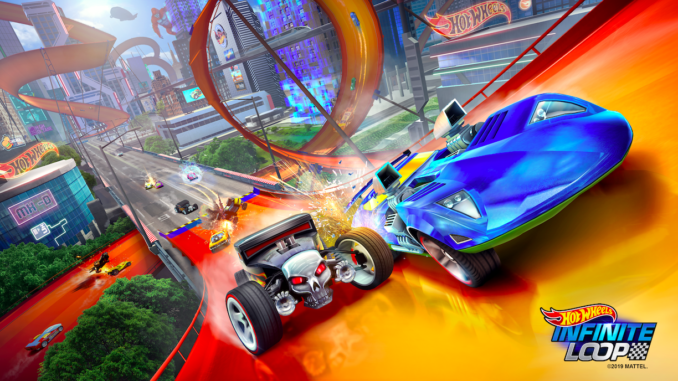
Mattel’s radical, sometimes painful transformation from a toy brand to an IP-driven franchise business will see the company make its standalone debut in the adult gaming industry today (22 August), unveiling an ad-supported mobile media platform in Hot Wheels Infinite Loop.
The company, which owns the rights to the likes of Barbie and Fisher-Price, has lent its brand to digital games through franchise models before. But now, with the launch of a Hot Wheels mobile racing app, it is striking out on its own in the gaming space, simultaneously looking to prove itself as a self-publisher and tap into the childhood nostalgia of adult players.
The strategy is part of chief executive Ynon Kreiz’s turnaround plan for the company.
The toymaker suffered losses in the wake of Toys ‘R’ Us’ downfall in 2017, resulting in the layoff of 2,200 staff in a bid to cut costs by $650m a year later. But while savings are being made downstream, Kreiz is crafting the company to significantly grow its topline, too.
The entry into adult gaming is part of Mattel’s rebrand into a “high-performing, IP-driven toy company”, which means all brands are treated internally as potential franchise opportunities for movies, TV shows, live events and more.
“In digital gaming, we’ve started to invest in titles that we can self-publish, so we can have direct line of communication to our users in a direct to consumer model,” explained Andrew Chan, Mattel’s head of digital gaming.
“In certain pockets where we feel like there isn’t a great licensing partner available or we feel like there’s an opportunity for our brands to shine, we will invest and launch games ourselves. We can put marketing dollars against it, and we can also control the content.”
Hot Wheels Infinite Loop, which gives up to eight players the chance to race cars against each other on their smartphones, is a free-to-play offer supported by ads and in-app purchases. Co-created with Creative Mobile, the game is a “live service” – one that will continually evolve its cars, races and content over time to keep consumers coming back.
“You constantly have to have new personality and keep the user well aware of what’s coming next so that they have an incentive to come back,” said Chan. “There’s so many apps in the App Store, so to capture a user’s attention requires a team to support it every day.”
Infinite Loop will display rewarded ads to gamers, allowing them to earn in-game currency by watching sponsored content. Advertisers will be able to access Mattel’s gaming inventory via its partner ad networks and player data will be anonymized and collected.
Meanwhile, a separate offer excluding in-app purchases will be displayed to children looking to play the game.
Notwithstanding an official launch at Gamescom in Cologne, Germany, Mattel’s launch strategy for the game is resolutely digital. Chan hopes to boost gamer numbers through a four-month exclusivity deal with Apple, which is supporting the company on App Store optimization in return.
A mobile campaign targeting fans of Hot Wheels and racing games will also drive user acquisition.
“New muscles are being built for Mattel in digital marketing,” said Chan “We’re not going to have TV ads or anything at the outset because we want people to see the game [advertised] and be able to play it instantaneously. We find that to be the most effective conversion.”
Ultimately, Chan believes it will be Mattel’s IP that will exalt the brand’s burgeoning gaming business to compete with the likes of EA or Gameloft.
It’s already saved considerably on licensing costs (most racing games have to pay for the rights to brands such as Ferrari and Bugatti), and the gaming chief believes the strength of brand Hot Wheels will save it “tens of millions of dollars” in awareness initiatives on the App Store and beyond.
“We want to be regarded in the same class as [the top gaming] competitors – we believe that Hot Wheels should be elevated to that level in the digital gaming space,” said Chan. “It’s elevated to that level already in pop culture … so when people think ‘Oh, Hot Wheels is not just a toy, it’s also a great video game’ then we will deem ourselves to really have been successful.”
Chan’s team have already begun to rummage through the rest of the Mattel toybox to figure out which other properties could receive the adult gaming treatment. And it’s not just mobile that Mattel’s got its eye on either.
“Google’s new streaming platform, Stadia, could be a great opportunity for us … and we’re also looking at things like [Amazon] Alexa,” explained Chan. “That’s not a traditional gaming platform but could be a very nice, complementary platform for us.
“As kids move from physical to digital, we need to be top of mind: we need to both protect our core business as well as have experiences that they can carry around in their pockets. This is very, very important as part of our transformation, and without it we’re going to lose our core audience over time.”
